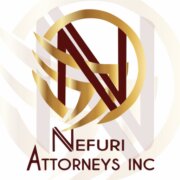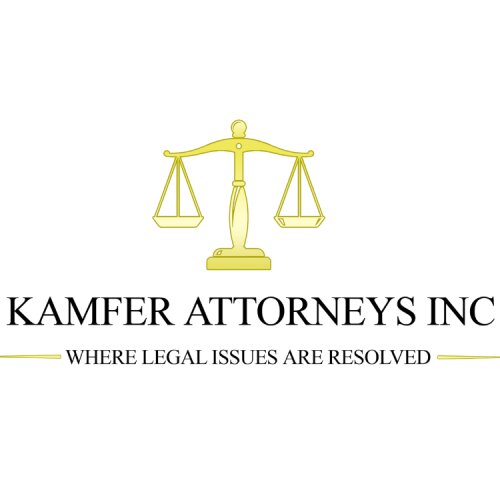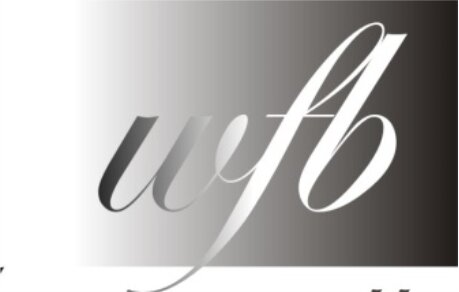Best Defamation Lawyers in Pretoria
Share your needs with us, get contacted by law firms.
Free. Takes 2 min.
List of the best lawyers in Pretoria, South Africa
South Africa Defamation Legal Questions answered by Lawyers
Browse our 1 legal question about Defamation in South Africa and read the lawyer answers, or ask your own questions for free.
- I want to sue someone for defamation and harassment
- Someone posted me on social media, without my consent and started spreading rumours about me. How should i handle this?
-
Lawyer answer by OPRICHTER Legal Network
Collect all available evidence, including chat conversations, voice recordings, and any other supporting materials. After that, you may file a report with the police.
Read full answer
About Defamation Law in Pretoria, South Africa
Defamation law in Pretoria, South Africa, is designed to protect individuals from false statements that could damage their reputations. In South Africa, defamation is generally characterized as a communication about a person that lowers their reputation in the eyes of reasonable members of society. It can take two forms: libel (written defamation) and slander (spoken defamation). The legal framework for defamation in South Africa is influenced by both common law precedents and the Constitution, which balances the protection of reputation with the right to freedom of expression.
Why You May Need a Lawyer
There are several common situations in which individuals may require legal assistance with defamation cases in Pretoria:
- False Accusations: If someone makes untrue statements about you that harm your reputation, you may need to seek legal recourse.
- Workplace Defamation: Defamatory statements from colleagues or employers can significantly impact your career.
- Media or Online Defamation: With the rise of digital communication, defamation on social media or through online publications is increasingly common.
- Public Figures: Public figures often face defamatory remarks and may need legal support to address damaging claims.
Local Laws Overview
Defamation law in Pretoria falls under the umbrella of South African law and is predominantly governed by common law principles. Key aspects include:
- Definition: Defamation involves the publication of a false statement that injures the reputation of another person.
- Burden of Proof: The claimant must demonstrate the defamation occurred and that it affected their reputation.
- Defenses: Potential defenses include truth, fair comment, and privilege. Proving that the statement is substantially true can be a complete defense.
- Role of Intent: Intention to defame is not necessary in South African law; the focus is on the effect of the statement.
- Damages: Successful claimants may be awarded damages for monetary loss, emotional harm, and reputational injury.
Frequently Asked Questions
What is required to prove a defamation case in Pretoria?
To prove defamation, you must show the statement was published, it was false, it referred to you, and it caused reputational harm.
Can I file a defamation lawsuit if the defamatory statement was made online?
Yes, online platforms are subject to defamation laws just like traditional media, and remedies are available for harmful online statements.
Is there a time limit for filing a defamation case in Pretoria?
Yes, generally, a defamation case must be filed within three years from the date of the defamatory publication.
What defenses might a person accused of defamation use?
Common defenses include truth, fair comment on a matter of public interest, and privileged communication.
Can I seek both damages and an apology in a defamation suit?
Yes, you can seek monetary damages and request a retraction or apology from the defamer.
How can I prove my reputation was harmed?
Evidence such as loss of business, social ostracism, and psychological impacts can support claims of reputational damage.
Can companies file defamation suits?
Yes, companies can file for defamation if statements harm their business reputation or lead to financial loss.
Is it possible to stop someone from continuing to defame me?
You may seek a court order or interdict to prevent further defamatory statements from being made.
How do freedom of speech laws affect defamation cases?
Freedom of speech is protected by the Constitution but must be balanced against harm to reputation, particularly if statements are false.
How much compensation can I receive for a defamation case?
Compensation varies based on factors including the severity of the defamation, financial impact, and emotional distress caused.
Additional Resources
For more information and support regarding defamation issues in Pretoria, consider reaching out to:
- Legal Aid South Africa: Provides free legal assistance to those who cannot afford it.
- Law Society of South Africa: An organization representing and supporting the legal profession.
- Media Monitoring Africa: Focuses on promoting a free, fair, independent, and diversity-based media environment.
- The South African Human Rights Commission: Can be approached for cases dealing with freedom of expression and rights violations.
Next Steps
If you require legal assistance in a defamation case in Pretoria, consider the following steps:
- Consult with a qualified lawyer who specializes in defamation law.
- Gather all evidence and documentation related to the defamatory incident.
- Consider the potential defenses and outcomes from the outset.
- Discuss with your lawyer the possibility of alternative dispute resolution methods, such as mediation.
- Be mindful of the legal timeframes to ensure your claim is filed within the permissible period.
Lawzana helps you find the best lawyers and law firms in Pretoria through a curated and pre-screened list of qualified legal professionals. Our platform offers rankings and detailed profiles of attorneys and law firms, allowing you to compare based on practice areas, including Defamation, experience, and client feedback.
Each profile includes a description of the firm's areas of practice, client reviews, team members and partners, year of establishment, spoken languages, office locations, contact information, social media presence, and any published articles or resources. Most firms on our platform speak English and are experienced in both local and international legal matters.
Get a quote from top-rated law firms in Pretoria, South Africa — quickly, securely, and without unnecessary hassle.
Disclaimer:
The information provided on this page is for general informational purposes only and does not constitute legal advice. While we strive to ensure the accuracy and relevance of the content, legal information may change over time, and interpretations of the law can vary. You should always consult with a qualified legal professional for advice specific to your situation.
We disclaim all liability for actions taken or not taken based on the content of this page. If you believe any information is incorrect or outdated, please contact us, and we will review and update it where appropriate.















